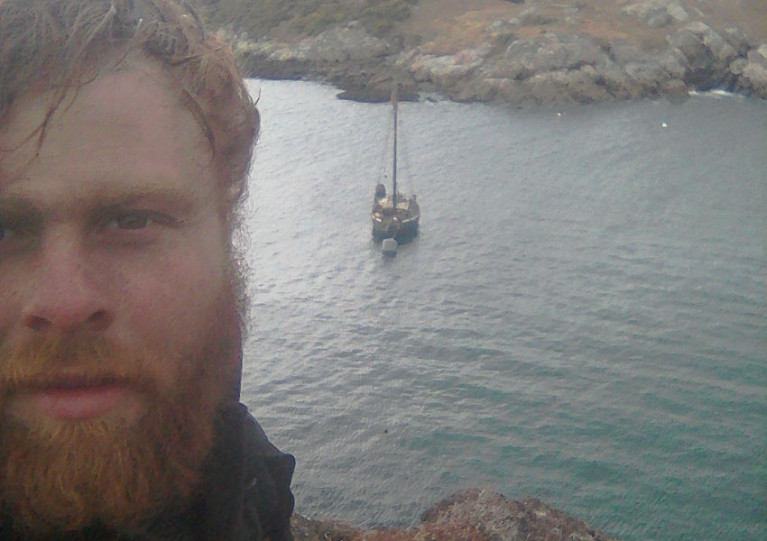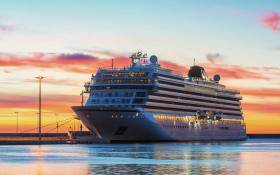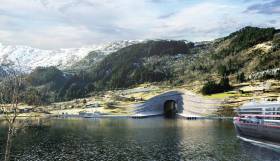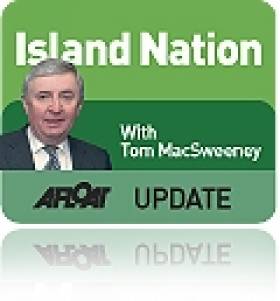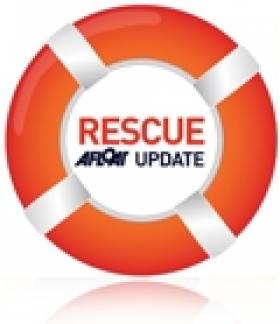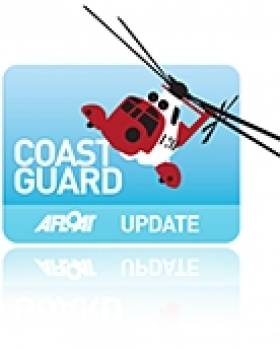Displaying items by tag: Norway
Irish Fishing Industry Criticises Prospect of ‘Free’ Blue Whiting Quota for Norway
Irish fishing industry bodies say they are “gravely concerned” that the outcome of current ongoing negotiations in Oslo will see Norway granted access to Irish waters to fish 150,000 tons of blue whiting.
This move would confer a value to the Norwegian fishing sector estimated at €42 million and without any compensation to the EU and Irish industry, they claim.
Aodh O Donnell of the Irish Fish Producers Organisation (IFPO) said that the Irish industry is not opposed to granting Norway access arrangements to fish blue whiting, as they have done so for many years.
However, the industry “considers it entirely reasonable” that the EU receives compensation from Norway for granting such access.
O Donnell says: “We are in Oslo to participate in ongoing fishing negotiations for 2024 and with a prospect of Norway being granted access to our waters to fish almost three times Ireland’s own quota and free gratis. This access ambition is of critical importance to Norway as this blue whiting stock is abundant mainly in Irish waters.
“We are not opposed to reaching an agreement and there is precedence in such arrangements for granting access. The access for Norway to Irish waters underpins their profitability for this fishery.
“However, a fair treatment is needed if Ireland’s seafood sector is to survive and grow, as Norway’s is. This is critical for the Irish industry, which is still reeling from the Brexit TCA in which we lost 40 per cent of the total EU value in this deal.”
Brendan Byrne of the Irish Fish Processors and Exporters Association (IFPEA) says Irish fishing bodies are united on this issue.
“The Irish industry has grave concerns at the prospect of Norway being granted enormous levels of free access to Irish waters,” Byrne says. “This cannot be at Ireland’s expense, and so there must be something on the table for us too.
“The Irish Government must maintain the position similar to the UK, that any access for Norway to our fishing grounds must be adequately compensated. Discussions are ongoing and a firm position must be taken until an arrangement is reached which benefits the EU and Ireland in particular, as much as Norway. Ireland must no longer attend the table as a perpetual loser; we must refuse to countenance any additional unfair deal with a non-EU member.”
O Donnell adds: “We are at a crossroads and Ireland must be prepared to maintain a firm unwavering stance. A radical reset is required regarding access by third countries to fish in our waters. The UK granted access rights to Norway in 2023 to fish mackerel in its waters and received in return a quota transfer that benefitted the UK sector to the tune of approximately €35 million. This mechanism is a benchmark that can be equally applied to the blue whiting access under discussion for Norway.
“We ask the [Marine] Minister [Michael McConalogue] to maintain a resolve and be prepared defend our interests with a meaningful compensatory transfer of quota by Norway in lieu of access. This is required as a step to turn the tide for our coastal communities.”
Marine Minister Meets Fishing Industry to Discuss EU/Norway Negotiations and Fleet Scrappage Scheme
Marine Minister Charlie McConalogue on Tuesday (10 January) today met fishing industry representatives at the Marine Institute in Galway and discussed the negotiations ongoing this week, between the EU and Norway, on a fisheries agreement.
The minister said: “Our interests relate to blue whiting and the level of the transfer of blue whiting quota to Norway to pay for other fishing opportunities that the EU is seeking and the level of access to EU waters which, in practice, involves fishing in Ireland’s 200 miles zone. These negotiations will recommence on Wednesday. The discussions with Irish industry representatives today were very useful and enabled a full consideration of the issues and the negotiating options.”
He added that he is pleased a number of Irish fishing industry representatives will attend this round of negotiations in Brussels and will assist his team as talks progress.
“I am continuing to engage directly with Commissioner Sinkevicious, EU Commissioner for Fisheries and the Environment to ensure that he understands Ireland’s concerns and its priorities in these negotiations,” he said.
Minister McConalogue also used this opportunity to provide an update on the voluntary fishing fleet scrappage scheme as recommended by the Seafood Task Force.
The scheme was focussed at whitefish polyvalent and beam trawl vessels, with the objective of voluntarily removing 8,000 GT and 21,000 KW to rebalance the fleet and improve the viability of the remaining fleet by making available more quota to them.
The minister briefed the industry that due to the level of interest from vessel owners, and the calculations from Bord Iascaigh Mhara on the levels of direct payments required to meet the objective of the scheme, that an increase in budget was required.
Additional funds have been successfully sought from the Department of Public Expenditure and Reform and an updated EU State Aid approval has been secured, he added.
“In order to ensure that all fishers who wished to take part in the scheme could do so and that the targets set by the Task Force could be delivered, I have increased the budget for direct payments under the scheme from €60 million to a maximum of €75 million with tax reliefs increasing proportionately,” the minister said.
“Offers for voluntary decommissioning will now be made to 57 vessel owners and the decommissioning of those vessels will make available an extra €34 million in quota for the remainder of the whitefish fleet improving their profitability and securing the future of the fleet.
“I am satisfied that I have now enabled all those who have chosen to apply for this scheme receive the full value of the scheme payment as guided by the Seafood Task Force recommendation.”
Chance to Join Orca and Humpback Adventure in Norway With Top Yachting Photographer Next Month
Join top yachting photographer Rick Tomlinson for a week-long adventure photographing orcas and humpback whales as they hunt for the herring in the fjords around Tromsø in Norway from 9-16 November.
The group will board the expedition yacht Qilak in Tromsø and explore the fjords close by, photographing the whales by day then anchoring each evening in remote coves away from all light pollution to hopefully see the northern lights.
This exclusive trip with the Cowes-based marine snapper is limited to just six guests, priced from €3,100 per person including full board.
For more information, get in touch Rick Tomlinson at [email protected].
A humpback whale regularly spotted in Ireland’s South West has been traced to Norwegian waters in the first confirmed link between our two countries, according to the Irish Whale and Dolphin Group (IWDG).
Researchers and citizen scientists in the Happywhale collective made the discovery last week as they matched images of #HBIRL43 — first recorded in Ireland in 2015 — with a whale sighted in the waters of the High Arctic in the vicinity of the Svalbard arcipelago.
“This is our first international re-sighting of this individual who was the first humpback recorded this season off the Stag Rocks in West Cork,” IWDG sightings officer Pádraig Whooley says.
“We documented it this spring/summer on four occasions between 27 April and 6 June. This match suggests it travelled a minimum distance of 3,800km over a period of 75 days, a daily average of 50km.
 File image of HBIRL43 sighted off off Toe Head in West Cork | Credit: Dan Lettice
File image of HBIRL43 sighted off off Toe Head in West Cork | Credit: Dan Lettice
“This sighting puts it circa 900km further north of the last known position of #HBIRL07 and is our only humpback to be recorded in what we’d term the High Arctic.”
It wasn’t the only remarkable news this week, as Whooley confirms that another Norwegian whale, #NA09849 — which has been sighted regularly off Tromso and Iceland over the last decade — was photographed this past June some 500km west of the Aran Islands.
“We’ve decided that, as this animal was so far offshore and well outside the Irish EEZ in international waters, for now anyway we’d keep it off the Irish catalogue,” he says.
“But it’s another important link to Norway and who knows just how useful these offshore encounters may prove to be in years to come as IWDG continue to unravel the mystery of this most iconic of our whales.”
A modern-day Viking hopes to complete an epic journey by land and sea from Norway to the Midlands despite the setbacks of stormy weather and the coronavirus pandemic.
As RTÉ News reports, Darragh Carroll left the island of Tromoya off Norway’s southeast coast last November in a traditional wooden boat named Rán, for the Norse goddess of the sea.
The chef by trade made it as far as Cape Wrath in the Scottish Highlands when Storm Brendan struck in January, and Run was stranded on the sandy band in Loch Eriboll for two months until the tides were high enough to refloat.
With the boat’s engine flooded, Carroll was forced to rely on wind power alone for the final leg from northern Scotland to the East Coast of Ireland.
But as he neared his home in Dublin, the coronavirus crisis put a roadblock on his plans to bring a flame he’d taken from Norway to the Hill of Uisneach in Co Westmeath.
RTÉ News has more on the story HERE.
Hundreds Airlifted From Stricken Cruise Liner Off Norway
Nearly 400 people have been airlifted from a cruise liner adrift off the coast of Norway, as RTÉ News reports.
More than 1,300 passengers and crew were on board the luxury liner Viking Sky yesterday (Saturday 23 March) when it sent out a Mayday after engine failure caused it to drift towards land southwest of Trondheim.
Seventeen injured passengers were hospitalised after the ship became adrift amid stormy conditions in the Norwegian Sea.
Others described chaos on board yesterday afternoon as “window panes were broken” and water began flooding the decks.
A sizeable number of the more than 900 passengers on the manifest are from the United States and Britain.
Airlifting of passengers was suspended this morning (Sunday 24 March) as weather conditions eased and tugboats were attached to move the vessel towards the nearest port at Molde.
RTÉ News has more on the story HERE.
Norway Plans World’s First Ship Tunnel
#ShipTunnel - Norway has an engineering first in the works in the form of a tunnel for ships, as gCaptain reports.
Plans for the Stad Ship Tunnel involve blasting a 1.7km canal through the Stad Peninsula, 200km north of Bergen, bypassing a treacherous stretch of coastline.
Funding has already been confirmed for the project, though it could be more than a decade before the first vessels sail through.
Upon completion, the tunnel — at a height of 37 metres and width of over 26 metres — may even accommodate some cruise liners drawn to what’s bound to be a major visitor attraction.
gCaptain has more on the story HERE.
A Question Asked in a Kerry Boatyard
#islandnation – "Now, why would you say that Tom?"
And when Fionán Murphy rightly challenged me about my question, I did ask myself why I had just said:
"It's unusual, isn't it, for a boat for Norway to be built in Kerry?"
"I don't know why you would say Kerry, Tom," Fionán said back to me. "Ireland maybe, but why would you say 'Kerry'? The guy involved found us, came over to us and we have a fantastic relationship with him. He has been here for two months and he will be here with us until the boat is finished. It is a great place to do business because the Norwegian currency is very strong. To do anything in Norway costs a fortune, so they are getting great value for money here and we are still getting a good price for our product. It is a great place to do business and if we can do more business there, it will be fantastic."
It was a bright exchange which I enjoyed, because it is good for an interviewer to be challenged. I was trained in radio broadcasting in the days when the interviewee was the most important person, not the interviewer. Too much of radio now centres on the personality of the programme presenter, not the interviewee. I still believe that the interviewee is the most important part of an interview, so Fionán and myself chuckled at my gaffe and as Managing Director and the man who owns Murphy Marine Services on the Shore Road in Valentia Island and so an islander, he made a strong point about Kerry and the importance of our offshore islands. I was talking with him and other members of the island community who were making the point that the Government does not show enough commitment to Ireland's offshore islands. I interviewed Fionán about the future of the island and how his boatyard, which builds, maintains and stores boats, is going.
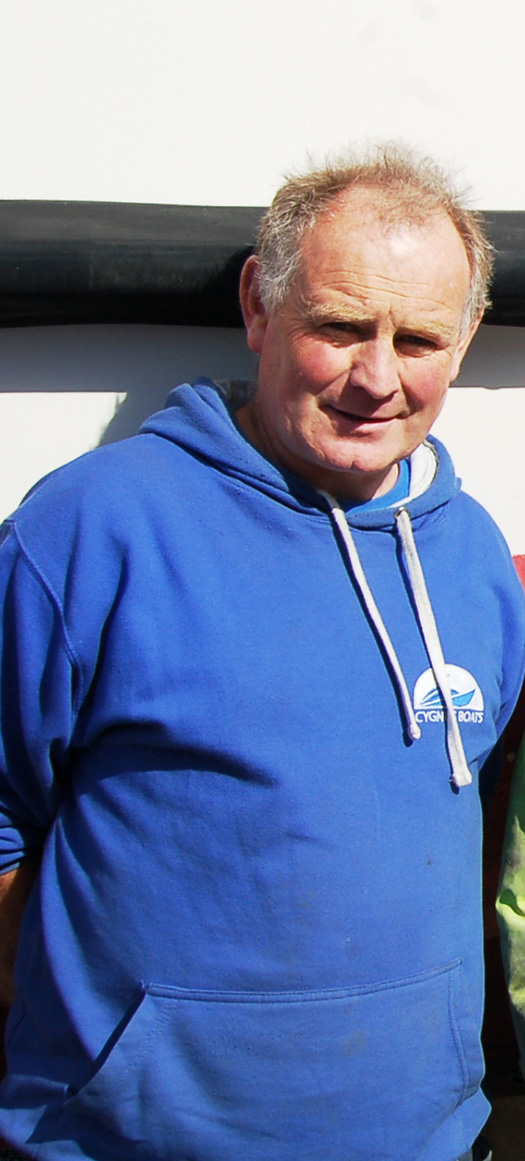
Fionán Murphy of Murphy Marine Services, Valentia Island
"Our predominant thing is new builds. If we get four-to-five of those a year we would be very happy. This keeps jobs on the island and that is what we need."
Fionán is also Chairman of the island's Development Company:
"Rural Ireland is in decline and we are doing what we can, but the island needs people and people need jobs to stay here. Islands need special recognition from the Government."
Fionán tells me in the interview, which you can hear here, how he started the yard fourteen years ago and how it has developed to its present stage of building boats which are sold all over Europe and how he overcame the economic, recessionary downturn.
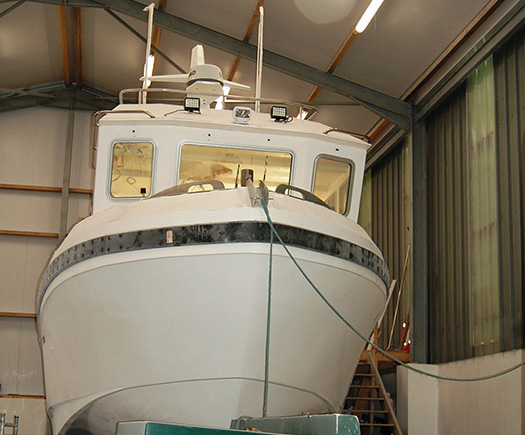
A new fishing vessel built in Valentia and bound for Norway
You can hear him on this current edition of THIS ISLAND NATION, Ireland's niche maritime programme, now broadcast on seven radio stations around the country and on this website. Also on the programme, the value of maritime safety training is emphasised by the interim Chief Executive of Bord Iascaigh Mhara, Michael Keatinge, who outlines how three fishermen's lives were saved when their boat capsized off the East Coast, because they had done the BIM safety course.
There's a lot more to be heard on THIS ISLAND NATION and you can Email me direct about the programme to: [email protected] or leave a comment below.
Navy Tows Stricken Norwegian Yacht To Shore
#Rescue - RTÉ News reports that a Norwegian couple have been rescued after their yacht suffered damage off the south coast.
The vessel sailed by the couple in their late 60s apparently dismasted some 160 miles off the Cork coast en route from the Azores to the Shetland Islands.
They were discovered by a passing fishing trawler early yesterday (21 May) and assisted last night by the Naval Service vessel LE Aoife, which is currently towing the stricken yacht to Castletownbere.
Lt Captain Erica Downing of the LE Aoife told RTÉ that the couple were "extremely lucky" to be spotted by the French fishing boat, having not seen any other sea traffic the previous fortnight.
RTÉ News has more on the story HERE.
The Norwegian coastguard have taken over the hunt for a missing Dutch sailing ship which has vanished with a crew of three on board.
The Warnow was apparently heading for Norway from Scotland and should have arrived on April 22 but nothing has been heard from the ship for two weeks.
Norwegian coastguards are using helicopters with special sensors in an effort to locate the ship. Officials in Sweden, Denmark and Germany have also been warned to be on the alert for internet signals, Dutch media reported.
A spokesman for the Dutch coastguard said the final destination of the ship is unknown and it was believed to be heading for the Northern Lights.
More from: www.dutchnews.nl/news/



























